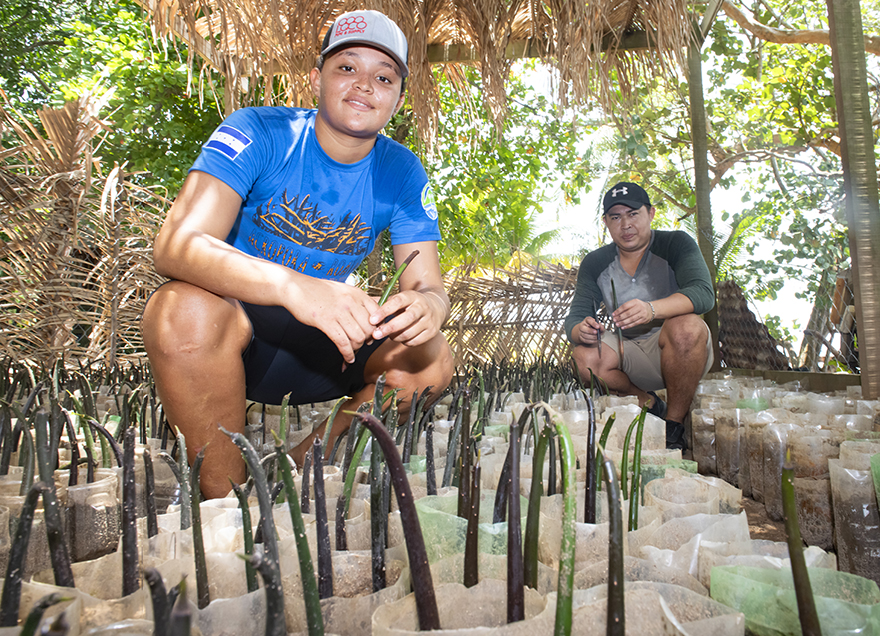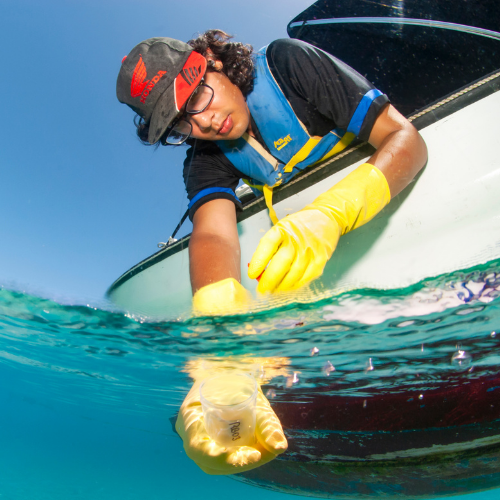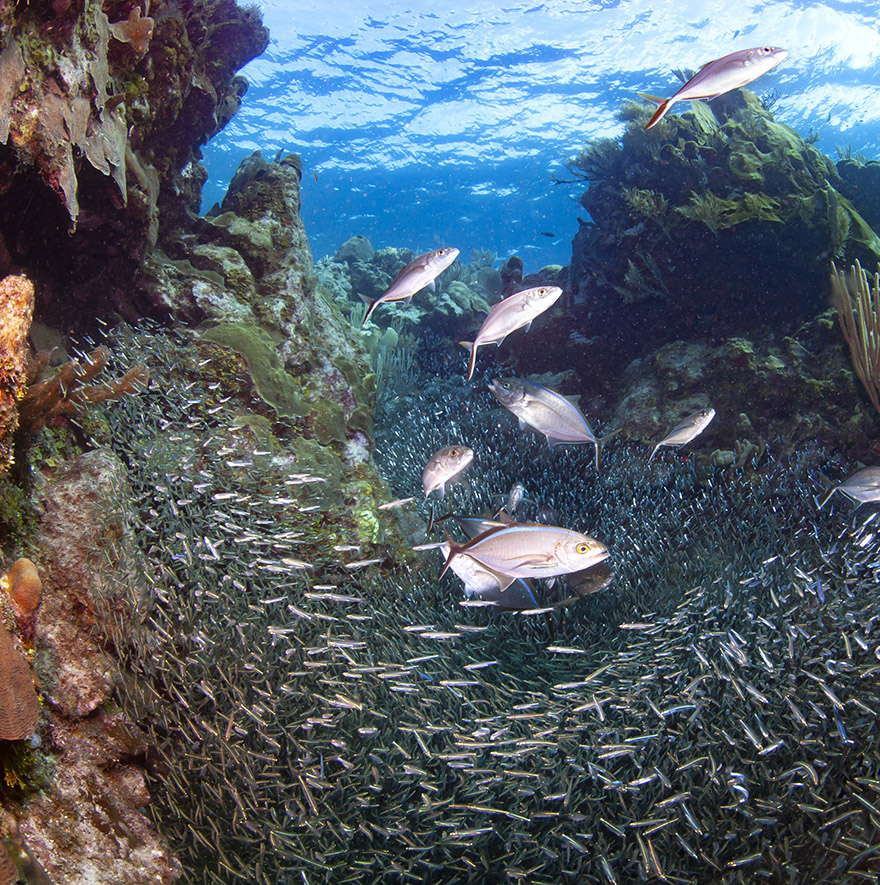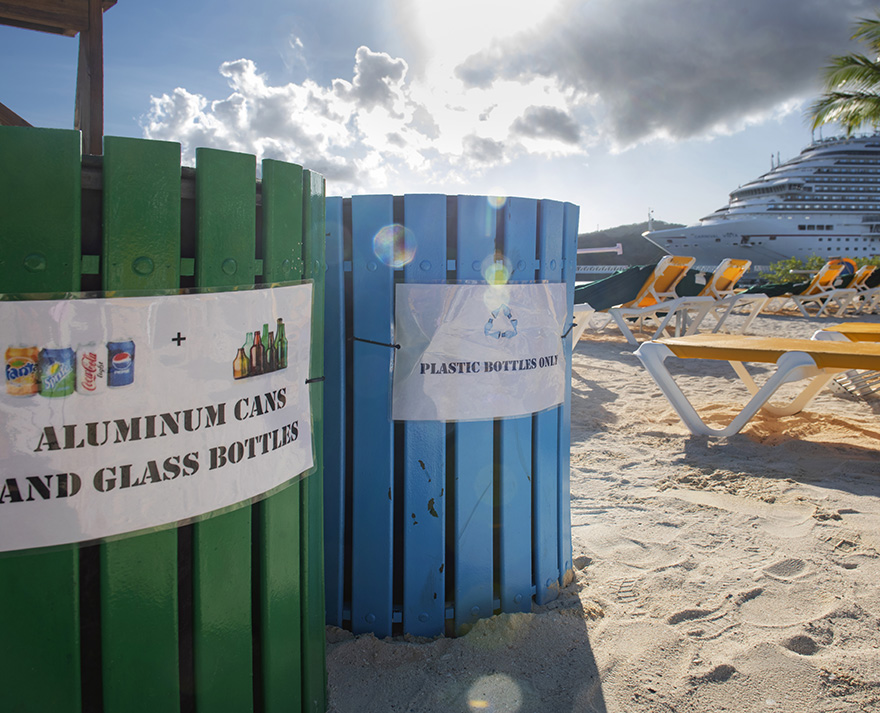
Saving local reefs
The coral reefs off the Caribbean coast of Honduras are part of the larger Mesoamerican Reef system—the second largest barrier reef system in the world. We work deeply with coastal municipalities, the fishing industry, national government, and scientists throughout Honduras to protect these vital reefs.
Our programs and partnerships related to clean water, healthy fisheries, and habitat protection in Honduras have successfully reduced sewage, overfishing, and disease. By addressing underlying social and economic drivers, we are successfully creating sustainable and scalable models that can be replicated throughout the region and around the world.
Scaling local wins
Clean Water
Across Honduras, we work with communities, organizations, and governments to improve wastewater treatment infrastructure and keep sewage out of the ocean and off coral reefs. When sewage enters the marine environment, it not only poses a health risk to humans, but it also brings nutrients that spur the growth of algae. If left unchecked, algae can quickly overcome a coral reef and push out corals. In West End, Roatan, our support resulted in measurable reductions in fecal bacteria and coral disease in nearshore waters. We now work with communities in West Bay and Coxen Hole on Roatan to promote best practices and support wastewater treatment initiatives and replicate the success seen in West End. We also helped our partner, Bay Islands Conservation Association Roatan, establish the only water quality testing laboratory on the Bay Islands and are working across the region to establish a comprehensive water quality monitoring program.


Healthy Fisheries
Overfishing is a pervasive threat to the Mesoamerican Reef (MAR)—one that we’re working closely with our partners to address. Herbivorous fish in the MAR help control the growth of seaweed-like algae; but when people overharvest fish in this region, whether for food or the aquarium trade, the entire ecosystem balance is threatened. Without herbivores, macroalgae grow unchecked, eventually outcompeting corals for space and smothering coral reefs. Although much of the barrier reefs along the Honduran coast are contained within an existing marine protected area (MPA) network, many of these MPAs are just “paper parks,” meaning that protective legislation for them exists on paper, but is not enforced in the real world. We work with local organizations, governments, and community members to create science-based management plans and enforce regulations within Honduras’ MPA network, and to build new MPAs that help fill management gaps. We also partner with communities that rely on fishing for income to develop income diversification programs that are both environmentally and economically sustainable.
We have implemented improved management systems for numerous Marine Protected Areas in Roatan, Utila, Guanaja, Trujillo, and Tela Bay. Our intention, and big vision for Honduras, is to connect all North Coast MPAs into a cohesive and regionally integrated biological corridor that protects wildlife along the entire Honduran Caribbean coast.
Habitat Protection
The Honduras Caribbean coast is a tourism hotspot. In a typical year, the island of Roatan alone attracts approximately 1.9 million visitors. Most of these visitors come to enjoy the beaches and the crystal blue water, but the tourism industry puts undue pressure on the coral reefs that make the destination so desirable. We work with our partners to build a culture of environmental stewardship within the tourism industry, and ensure tourism revenue funds natural resource management efforts. We also help local community members find sustainable ways to benefit from tourism revenue and protect their coral reefs. For example, we build opportunities for them to become tour operators and dive masters by supporting programs such as Protect our Pride in Roatan, Reef Leaders in Utila, and Protectores del Océano in Guanaja.
